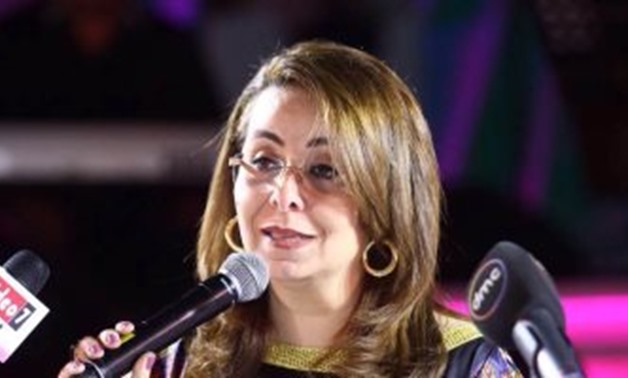
The Minister of Social Solidarity Ghada Waly - File Photo
CAIRO – 2 November 2017: A cooperation protocol will be signed between the Ministry of Solidarity and the Holding Company for Drinking Water and Sanitation to provide drinking water and sanitation to Upper Egypt.
This comes under the “decent housing” initiative adopted by the Ministry of Social Solidarity to improve the environmental and health situations of vulnerable families. This initiative aims to provide drinking water and sanitation services, as well as promote the infrastructure of houses.
According to the protocol, proper funding will be given to several NGOs to supply those lacking access to safe, readily available water and safely managed sanitation in villages in Upper Egypt. The NGOs aim to implement the proper pipelines and sanitation systems needed for pure, drinking water.
“Financing contracts will also be signed with NGOs as the Ministry of Social Solidarity believes in the concept and the value of social responsibility to support communities and finance charitable, productive, health, educational and developmental projects,” said Minister of Social Solidarity Ghada Waly.
Many Egyptians, especially in rural areas and slums, lack access to adequate sanitation and clean water as their dwellings are not connected to the water system. There are many villages in rural Egypt that continue to rely on water delivery and waste disposal systems that are outdated, unhygienic, and therefore, unsafe. As a result, the situation with regard to safe drinking water, household sanitation, and the environment within these communities is far from satisfactory.
Lack of access to safe water and proper sanitation facilities as well as poor hygiene contribute to the spread of diseases, which significantly and negatively impact children’s health and nutrition.
Consequently, Egypt, with the cooperation of numerous NGOs, could implement around 8,000 household connections, reaching an estimated 40,000 people in rural areas of the governorates of Assiut, Sohag and Qena, and in two poor informal settlements in the Cairo governorate between 2013 and 2016, according to a UNICEF report.
Additionally, UNICEF provides technical support to the Holding Company for Water and Waste Water (HCWW) and governorate water companies.

Comments
Leave a Comment